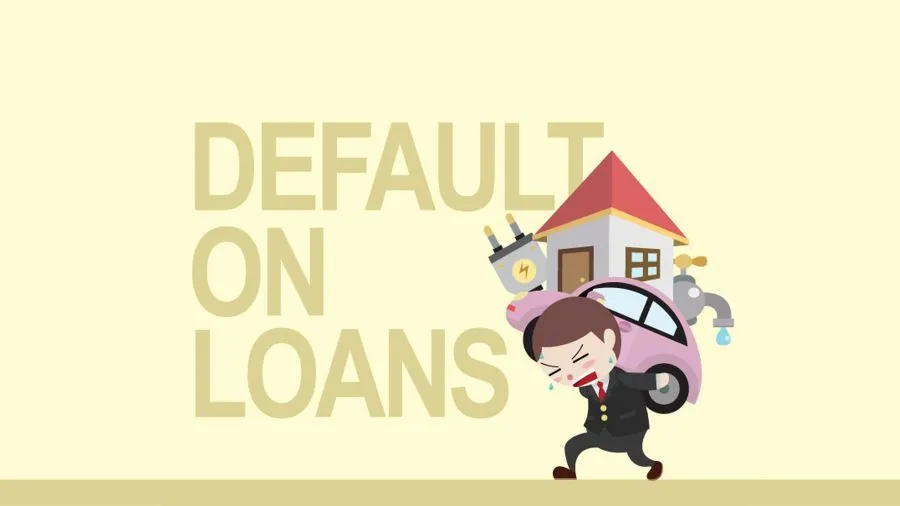Table of Content
▲
Missing payments on home loan EMIs can cause significant stress and feelings of being overwhelmed, especially when considering the significance of upholding a positive credit score and the possible legal consequences. In India, the need to stay current on EMI payments can be overwhelming, especially in times of financial difficulties like unemployment, medical crises, or unforeseen costs. Nevertheless, failing to meet your mortgage payments does not signify the conclusion of the journey. There are various tactics and measures you can utilize to handle the default on your home loan EMI efficiently and restore stability.
This detailed manual will guide you through the different tactics to use if you are unable to make timely home loan EMI payments. We will address all important aspects you need to be aware of, including evaluating your finances, discussing with your lender, and considering options like loan restructuring, moratorium periods, and balance transfers. Furthermore, we will explore the legal options available under the SARFAESI Act in case of default on your home loan EMI, as well as the significance of financial guidance.
Comprehending these choices can equip you with the essential resources to manage defaults effectively, reduce the consequences on your financial well-being, and ultimately restore your financial stability. If you are currently dealing with default on your home loan EMI or want to be ready for potential future challenges, this guide will provide you with important information and useful tips to handle the complexities in India.
Assess Your Financial Situation
Review Your Finances
Start by assessing your current financial situation. Identify the reasons behind the default and evaluate your income, expenses, and savings. This will help you understand how severe your financial problem is and what you can do to address it.
Budget Adjustment
Develop a thorough financial plan to determine if there are any unnecessary expenditures that can be reduced. Defaulting on your home loan EMI can lead to additional penalties and negative impact on your credit score.
Also Read: 7 Best Home Loan Apps in India
Communicate with Your Lender
Inform the Bank
As soon as you realize you might default, inform your bank. Banks appreciate proactive communication and may offer solutions to help you manage your payments.
Request a Grace Period
Some banks may offer a grace period or temporary relief from payments if you explain your financial hardship. This can give you some time to arrange funds without additional pressure.
Loan Restructuring
Loan Restructuring Options
In case of a temporary financial problem, you can ask your bank to modify your loan. Defaulting on your home loan EMI could lead to options such as extending the repayment period, lowering the monthly installment, or transitioning to a decreased interest rate.
Benefits of Restructuring
Restructuring can make your EMIs more manageable and prevent your credit score from taking a hit due to defaults.
Opt for Moratorium
Moratorium Period
During a financial crisis, such as the COVID-19 pandemic, the Reserve Bank of India (RBI) may announce a moratorium period. This allows borrowers to pause their EMIs for a specified period without being classified as defaulters.
Post-Moratorium Planning
Keep in mind that interest will continue to accrue during the moratorium. Plan to manage your finances once the moratorium ends to avoid further stress.
Consider a Balance Transfer
Balance Transfer Loan
You can transfer your existing home loan to another bank offering a lower interest rate. This can reduce your EMI burden and make repayment easier.
Eligibility for Balance Transfer
Ensure you have a good credit score and a consistent repayment history to qualify for a balance transfer. Compare offers from different banks to find the best deal.
Also Read: Learn how to improve your CIBIL score for Home Loan
Liquidate Assets
Sell Non-Essential Assets
Consider selling non-essential assets like jewelry, a second car, or investments to raise funds for your EMIs.
Use Savings
If you have savings set aside for emergencies, this is the time to utilize them. Avoid depleting retirement funds or investments with significant penalties.
Seek Financial Counselling
Professional Help
Financial counsellors or advisors can help you create a repayment plan and provide guidance on managing your debts effectively.
Support Groups
Joining support groups for debt management can also provide emotional support and practical advice from individuals who have faced similar situations.
Legal Remedies
SARFAESI Act
In India, should you fail to make payments on your mortgage, the bank can begin legal action under the SARFAESI Act. This enables the bank to auction your property in the event of default on your home loan EMI to recover the loan amount.
Stay Informed
Stay informed about your rights and the legal process. You have the right to be notified and can contest the auction if you believe it is unjust.
Plan for Future Stability
Increase Income
Look for additional income sources, such as part-time jobs, freelancing, or renting out a part of your property.
Emergency Fund
After you establish stability, begin saving for an emergency fund that can cover a minimum of six months worth of expenses. This will safeguard you from any potential financial shocks in the future, especially if you default on your home loan EMI.
By implementing these methods and techniques, you can successfully handle defaults on your home loan EMI and strive to restore your financial security.
Also Read: Understanding Different Types of Home Loans: Know Complete Information









_1771582392.webp)
_1771577585.webp)
Ans 1. The Lender may Declare your Loan as DefaultForeclosure or bank insolvency is the last thing anyone wants. But if you miss more than one EMI payment, then your lender may declare your loan as default. This means that they can take possession of your property and sell it to repay the loan amount.
Ans 2. Your credit score dives when you default on your home loan repayment. Not only does it reduce your creditworthiness, but it also impacts future borrowing plan. Lenders perceive you as a high-risk individual which dents your chances of procuring any loan.
Ans 3. An increased interest rate: If you haven't paid your EMIs, the lender will increase the interest rate and/ or levy additional fees and charges on your loan. A lower CIBIL score: An EMI default would lead to the borrower's credit score lowered, which affects his future ability to take debt.
Ans 4. Lenders can file a case in a civil court seeking repayment. Defaulters may face asset seizure or wage garnishment. Negotiation and settlement options may be explored before legal recourse. This will also reflect on your credit history and severely affect your ability to secure loans in the future.
Ans 5. As per RBI guidelines you can pay if you missed EMI of less than 3 months. After thay you will get legal notice. And you will get 2 months to repay Loan EMI. But it will affect your credit score and you have to face issue in financial crisis in future.